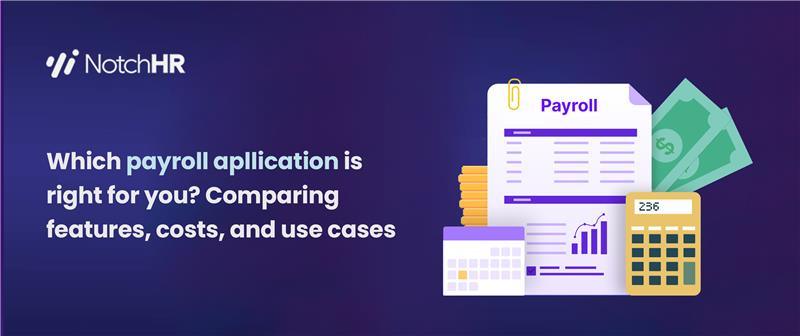We communicate everyday – verbal, written, body language, you name it. But communication at work is a different ball game entirely. Especially when you’re an HR manager whose bulk of work is basically talking to prospective employees (interviews), employees, management and other stakeholders.
Good communication is the secret sauce to a successful organization and guess who’s the head chef in this kitchen? That’s right, HR!
As an HR manager, you’re in charge of keeping the lines of communication open and friendly between bosses and employees. Basically, you’re the glue that holds everyone together and ensures everyone’s in the loop.
But let’s face it, even the best chefs have a few kitchen mishaps. So, it’s important to keep an eye out for any communication breakdowns that could cause confusion and disrupt the smooth flow of work.
These 10 tips have been tried and tested by HR professionals and have proven to be real lifesavers when it comes to overcoming communication challenges and building boss-employee relationships.
With these tips, you will be able to make sure everyone is heard, problems are solved with lightning speed, and you can take a proactive approach to communication. The end result? Higher employee productivity and satisfaction.
1. Clearly define HR’s role and responsibilities
Improving HR communication starts with getting crystal clear on your role and responsibilities. This is your chance to set the stage and let everyone know what you’re all about. So go ahead, get your game face on and define your role with confidence!
This will ensure that employees understand who they should go to with their questions, concerns, or feedback and will also help to prevent misunderstandings or confusion.
This may not seem significant at first, but it does have a high impact on internal communication flow. Sorting this out early enough and clearly communicating it would help employees identify and report issues more effectively.
Read also: Your Recruitment Process Is About to Become Easier
2. Encourage open and honest communication
As an HR leader, it’s your responsibility to make sure employees feel heard loud and clear! Encourage those ideas, thoughts, and concerns to flow freely, and watch as any potential communication breakdowns disappear before your very eyes.
You’re the HR superhero (no hero without HR), making sure everyone’s voice is heard and their worries are put to rest. So go ahead, spread your cape and get ready to make some magic happen!
You can achieve this by encouraging open and honest communication at work, and by promoting a culture of transparency and trust.
Employees should feel that they are able to communicate openly with you without fear of any negative consequences.
3. Regularly gather and address employee feedback
Regularly collecting employee feedback and concerns is one of your key responsibilities as HR manager. But how do you go about it? Easy – just whip out your employee survey, focus group, or meeting toolkit, and voila! You’re all set to gather valuable insights and address those concerns like a pro.
It’s important that employees feel that their feedback is heard and that action is taken in response to their concerns. By gathering and addressing employee feedback and concerns, you can identify and resolve issues before they become bigger problems.
Read also: 8 Tips on Recruiting the Best Candidates
4. Use a centralized communication channel
Having multiple apps, and systems for communicating general information can cause gaps. Imagine starting your day with your colleague telling you about an important announcement that was made three days ago. Apparently, you missed it because it was announced on the noisy company WhatsApp group (which you muted), and not the usual email.
Effective team communication requires the use of a centralized communication channel that is devoid of distractions. A centralized communication channel makes sure that your team have a synergized system of reaching each other for work-related communications, and you can always reach everyone at a go.
By utilizing a centralized channel, you can ensure that employees receive important information and updates in a timely manner. An example of a centralized communication system is Chats & Announcements on NotchHR. This feature on NotchHR app ensures that there is only one go-to place for employees to communicate, interact, and get company-wide information.
5. Provide training and resources
Both HR professionals and the management must possess good communication skills to be effective in their roles.
Therefore, as the HR professional or leader, it is your responsibility to make provisions for training resources on effective communication skills for both yourself and the management. This will ensure that everyone is able to communicate effectively and efficiently.
Also, this would mean you are fostering a culture of effective communication in your organization.
As you organize trainings and put resources together, note that employees are 75% more likely to watch a video than read text, Bear this in mind when putting together training resources.
6. Encourage active listening and empathy
Active listening and empathy are the secret weapons of effective communication. And guess what, as an HR leader, you should be in charge of spreading the word!
Encourage your employees to listen with intent and show a little empathy, and watch as communication skills soar to new heights. You’ll be the empathy enabler, making sure everyone’s heard and understood.
This will help to build trust and understanding between employees and help to resolve conflicts more quickly. Also, this culture will help to create a more positive and productive work environment.
7. Establish a system for escalating and addressing issues
When issues arise, it is essential that you have a system in place for escalating and addressing them.
This can include a designated person or team who is responsible for managing communication breakdowns, as well as a clear process for escalating and resolving issues. By having a system in place, you can ensure that communication breakdowns are addressed quickly and effectively.
Read also: Why Going to the Bank to Remit Employees’ Tax & Pension Is a Waste of Time
8. Foster a culture of transparency and trust
Transparency and trust are the cornerstone of effective communication. You, being the HR, get to build that foundation!
Promote open and honest communication and make sure employees feel heard. Address their feedback and concerns, and keep everyone in the loop with important company news and developments. This would allow you as an HR build stronger relationships between management and employees.
A handy tool that can make this very easy for you is Announcements on NotchHR. If your company already use NotchHR for all of your HR processes, you have access to NotchHR Chats & Announcements for all your internal communications.
9. Be professional and respectful
Keeping it professional and respectful is key to successful communication. That means you’d have to ditch any language or behaviour that’s unprofessional or disrespectful. No name-calling, yelling, or personal attacks allowed! Ensure communication is always courteous and professional. You’re the keeper of professionalism, making sure everyone stays on their best behaviour. Get ready to raise the bar on respectful communication!
A respectful and professional approach to communication at work builds a more productive and positive work environment where everyone thrives.
10. Evaluate and improve communication strategies
Effective communication is a never-ending journey, and as an HR leader, it’s your mission to keep that journey rolling! Continuously evaluate and improve your communication strategies and processes, and watch as communication gets better and better.
You’re the chief communicator, always looking for ways to make things better. Get ready to be the driving force behind effective communication!
Conclusion
From your first interaction with a prospective employee during interview to when they become an integral part of the organization, the place of effective communication cannot be overemphasized. By implementing the tips outlined here, you can improve the way you communicate with your colleagues and employees.
Remember, communication is a two-way street, and it’s important to not only send messages but also to receive feedback. We hope that these tips will help your organization improve its HR communication.
We invite you to check out NotchHR. Not only does it simplify HR processes, but also offers a wide range of communication tools and features to help you and your team communicate effectively. Sign up for free today and improve your organisation’s HR processes and communication!



